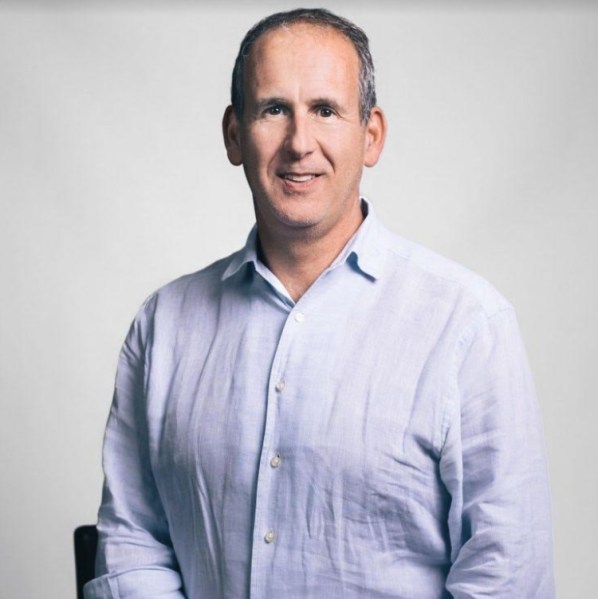Not many investors have the expertise to invest in the hit-or-miss video game business. But Jon Goldman has figured it out.
He is a venture partner at Greycroft, the early-stage venture capital firm in Los Angeles that has had big exits such as Maker Studios (bought by Disney), Buddy Media (bought by Salesforce.com), and Braintree (bought by PayPal). He has invested in numerous game companies through Greycroft, but he recently created a new way to invest on his own through the GC VR Gaming Tracker Fund.
Goldman manages the Tracker fund, which invests in seed stage companies across virtual reality, augmented reality, games, and esports. And he also serves as managing partner at Skybound, which handles licensing for The Walking Dead. Tracker is independent of Greycroft’s family of core funds but counts Greycroft as a limited partner and close business partner.
Goldman picked up his game expertise as founder and CEO of Foundation Entertainment, one of the biggest independent makers of video games. It has 1,000 employees and 11 studios when he sold it in 2006.
I interviewed Goldman about his investment outlook for 2018 in sectors such as enterprise VR, esports broadcasts, streaming, and monetization tools — all areas that he is excited about. Goldman has made more than 20 investments through tracker, and he has become one of the biggest backers of game-related startups. In the past year, his fund investments include Sliver TV, Mind Show, The Wave VR, FanAI,CameraIQ, MetaArcade, CameraIQ, and Toonstar.
Here’s an edited transcript of our interview.

Above: Jon Goldman is general partner of GC VR Gaming Tracker Fund and a Greycroft venture partner.
Jon Goldman: I’ve done 30 or so investments across a variety of things, in one way or another. They’re all game-related. I have a few VR deals that are health care-related. One around pain management and another around autism and mental health challenges. But by and large they’re game-related. I invested in Fable, and in Kite and Lightning, which is doing a VR-based arena battle game with a spectator mode for folks outside VR.
GamesBeat: What are some of your biggest bets on games?
Goldman: There are a couple of things that I’ve continued to support. One is a company down in Los Angeles called Mindshow, which is doing an interactive creativity tool in VR. It allows you to set up little interactive scenarios that are game-like, or just set pieces or bits of narrative, shows you can output to YouTube. What’s interesting is, instead of having to build something in 3D and program it, it’s very much a program by example system. You operate your 3D characters as puppets. Anybody with a controller can act out something. You can rewind, set the camera angles, re-compose your shot. They’re almost like broadcast tools.
Another one I’ve really loved — you’ve seen TheWave VR, the music system? People are skeptical at first, but I’ve never seen anybody not be blown away by it. I showed it to the head of Sky Films in the U.K., a guy who must be in his 60s. The CEO used to work with Harmonix. He’s built the most interesting music play system I’ve seen. You’re basically DJing, but that doesn’t really capture it. It’s not a facsimile of a DJ deck or anything. You’re playing with light and space and shapes to affect the music, You actually see people dancing in a way that wouldn’t have believed unless I saw it.
GamesBeat: What do you think as far as broader trends that are going on? VR seems to be giving way to esports as the hot sector at the moment.
Goldman: Right. I just recently — we’re doing an announcement around this, but I don’t know if it’s ready to publish. It’s a company doing esports-related stuff in blockchain. Two trendy things at once. I feel the same way. I made a number of bets in VR. The market didn’t blow up immediately. I have a few companies like the ones I just mentioned that I’m long-term bullish on, but I’m not feeling an intense need to keep adding to the portfolio there.

Above: Jon Goldman’s GC VR Gaming Tracker Fund invested in Epics.gg
GamesBeat: I’m noticing one or two stories related to new esports investments each week now. It seems like we’re seeing a groundswell.
Goldman: There’s one sort of backing trend. Let’s separate that purely from the intrinsic value of esports. There are a number of wealthy LPs and wealthy individuals in general who may not be able to buy a sports franchise, but this looks like a way to get into team ownership. I think you’re seeing a lot of very wealthy people, including existing team owners—the price to get involved is not a big price for them. They’re laying some bets there.
The overall trends are just very intriguing. The level of spectators and engagement would get anybody’s attention. A lot of traditional athletic sports are aging up. That creates an issue. And then because you’re seeing this youth viewership, it gets brands interested. You have a lot of parts to the ecosystem of traditional sports that are attractive to high net worth individuals, venture firms like mine, and then also to brands. If you look at how it’s done in traditional sports, there are lots of ways to make money: ticketing, sponsorship, endorsements. The whole business ecosystem could apply here.
Just like VR, if you’re an investor, you want to get involved as early as you can and see how it plays out. That’s one thing a lot of people don’t realize about this herd behavior that happens in investing.
GamesBeat: You don’t want to be last.
Goldman: Right. That’s the nature of venture capital. These are illiquid, riskier things with potentially high rewards. That’s where you want to play. But I’ve always felt—I think for people like us who’ve been around it a long time, this is just an extension of what we’ve seen in terms of social gameplay. Most games used to be single-player. Then you add social gameplay and it makes it stickier and harder for people to leave, even for what might ostensibly be a superior game.
Now, over the past few years, thanks to Twitch, we’re seeing this development where the non-player audience can be even bigger than the player audience. That turns gaming into a media business, as opposed to just a games business. If you look at things like HQ Trivia, that’s just part of a trend in spectators and participants building up a big audience. That gets the attention of brands and changes the nature of gaming.
If you look at things like Outpost Games — I’m not an investor there, but it’s very interesting, this idea of a game like a game show where, if you die, you’re out. Just like losing on Jeopardy. I’m not coming back. The game isn’t about me. The game is for the spectators.

Above: Jon Goldman invested in Fable Esports.
GamesBeat: I keep wondering how big this opportunity is going to be, people getting paid to play games, where it’s all about drawing attention to yourself. Esports athletes are one form of that, but we see all these other kinds of content creators. It seems like a pretty big pool of people is starting to make money from being watched around games.
Goldman: That’s what you need. I’m sure you get the same thing. People ask me all the time, incredulously, “People watch other people play games?” My older relatives who watch golf on TV–that’s inexplicable to a lot of people, but in another way it makes total sense. If you play golf you want to watch really good players play golf. If you play League of Legends or DOTA, you want to watch really good players play.
Extending the analogy, say you’re a casual tennis player. Then you go and get lessons, because there are 20 courts at the club and people can see you, so you don’t want to embarrass yourself. Now people are playing games in public, and they want to be pretty good, or at least catch up. It’s not like everyone expects to be a professional, but some people want to take a chance at it. Either way, when you’re playing socially, you don’t want to embarrass yourself.
I’ve invested in a company out of Boston, Gamer Sensei. They’re doing lessons. I think that if you join a game like League of Legends, you want to get up the curve relatively quickly. In the same way that people go to the club pro to take golf lessons, tennis lessons, whatever it is, now that gaming is much more of a public, social experience, it creates an opportunity for teaching in a way that didn’t exist before. In that way it very much mirrors how traditional sport operates, from the amateur level up to pro.
GamesBeat: So you think the overall opportunity is in gaming as a media business?
Goldman: Right. The shift from games for gamers to games for an audience is the way I look at the trend, as opposed to just “esports is the trend.” Esports is just one component of a larger shift in the industry that’s taken place over my career. I got started doing packaged software, mostly single-player. This is a big sea change. Esports is part of a much bigger phenomenon.

